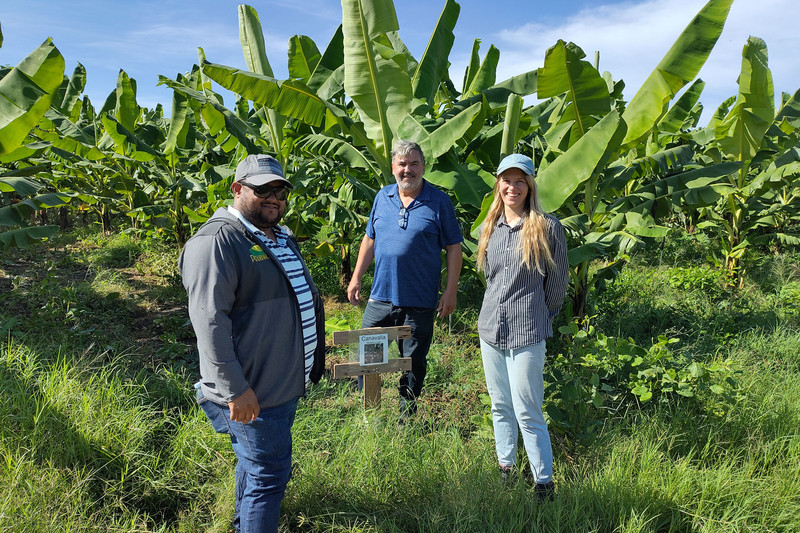Diversity and Resilience: Research Project on Biodynamic Banana Cultivation

With a participatory research project in the Dominican Republic, the Software AG Foundation (SAGST) is supporting biodynamic banana farms in building resilient production systems - an important contribution to greater ecological, social and economic resilience in times of climate change.
"Banana cultivation is under enormous pressure worldwide: although demand in Europe continues to rise, producer prices are stagnating for local producers - while costs are rising at the same time. In order to remain economically viable, even organic farms often rely on large monoculture plantations. These are not only detrimental to biodiversity, but high nutrient requirements, pest pressure and extreme weather events also pose major challenges for farms. In order to identify new approaches here, SAGST is funding the first phase of a new practical research project by Forschungsring e. V. It aims to lay the foundations for more resilient, sustainable cultivation systems in line with biodynamic agriculture on ten Demeter-certified banana farms in the Dominican Republic.
"The aim is to further develop proven concepts and adapt them specifically to local conditions - with innovative ideas, scientific support and, above all, mutual exchange," explains Anna Elisabeth Bresser, project manager at SAGST. To this end, a participatory network of farmers, advisors and researchers has been set up to jointly test systemic solutions. In the first phase, the measures range from the introduction of animal-assisted grazing systems with sheep to increasing nitrogen availability through the targeted cultivation of legumes, crop diversification and improving fertilizer management. Each trial is carried out on several farms in parallel or with a time delay - this allows the knowledge to grow and flow directly back into practice.
But the project aims to clarify more than just ecological issues. It also addresses the social challenges of the region - such as the high migration rate and the difficult working conditions of many employees. "Through collaborative learning and concrete improvements in day-to-day operations, we can create an environment that has a strengthening effect on the local people - also in economic terms," says Bresser. "We see this as an opportunity for genuine commitment, responsibility and a new understanding of biodynamic work to emerge from joint research."
